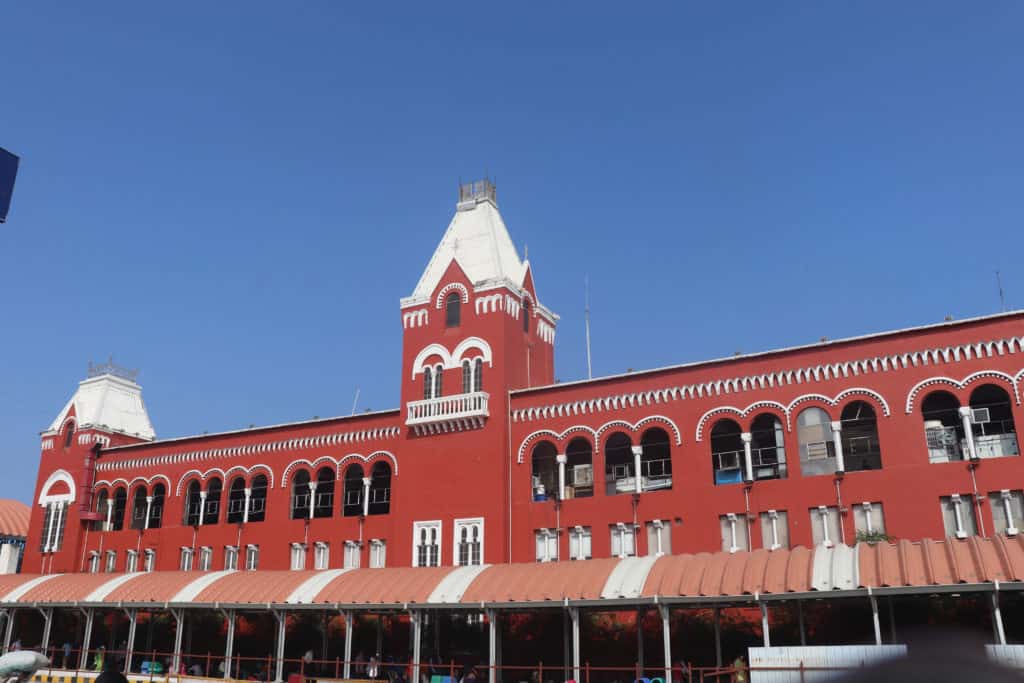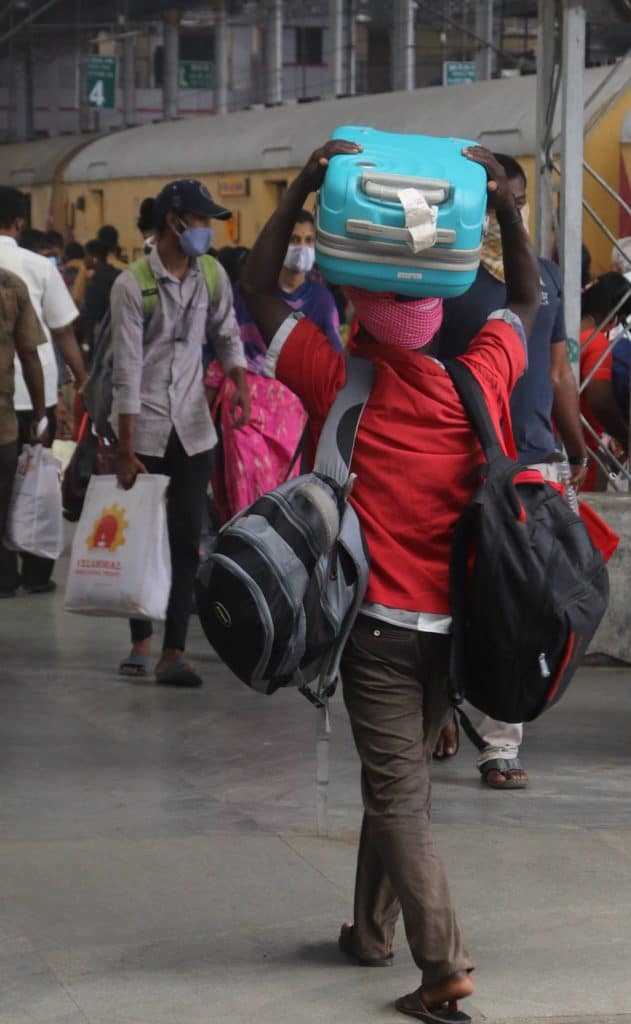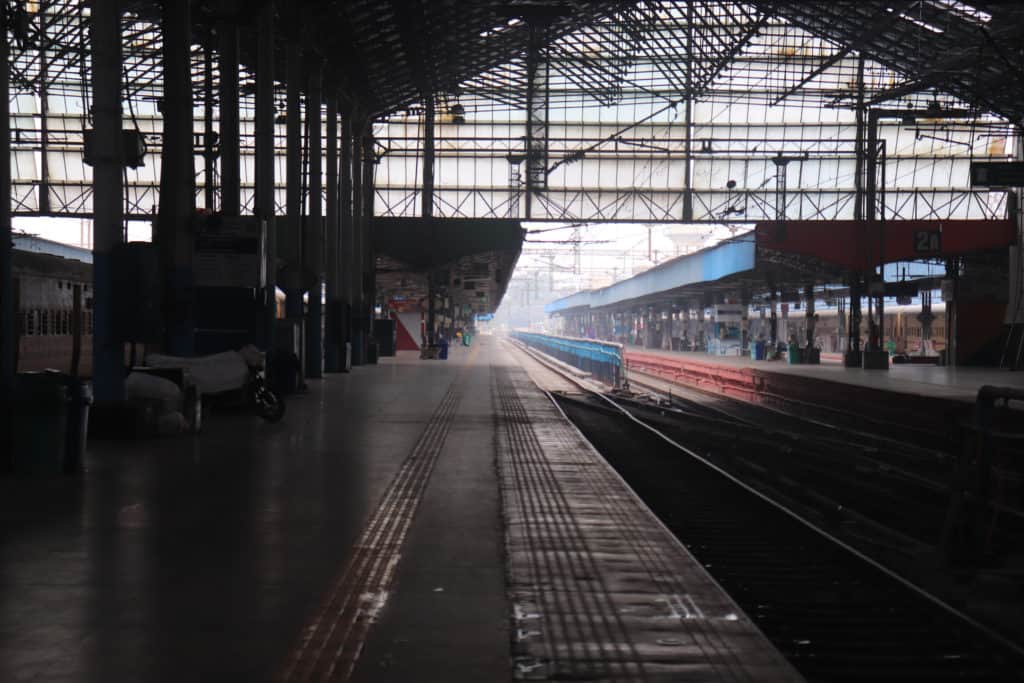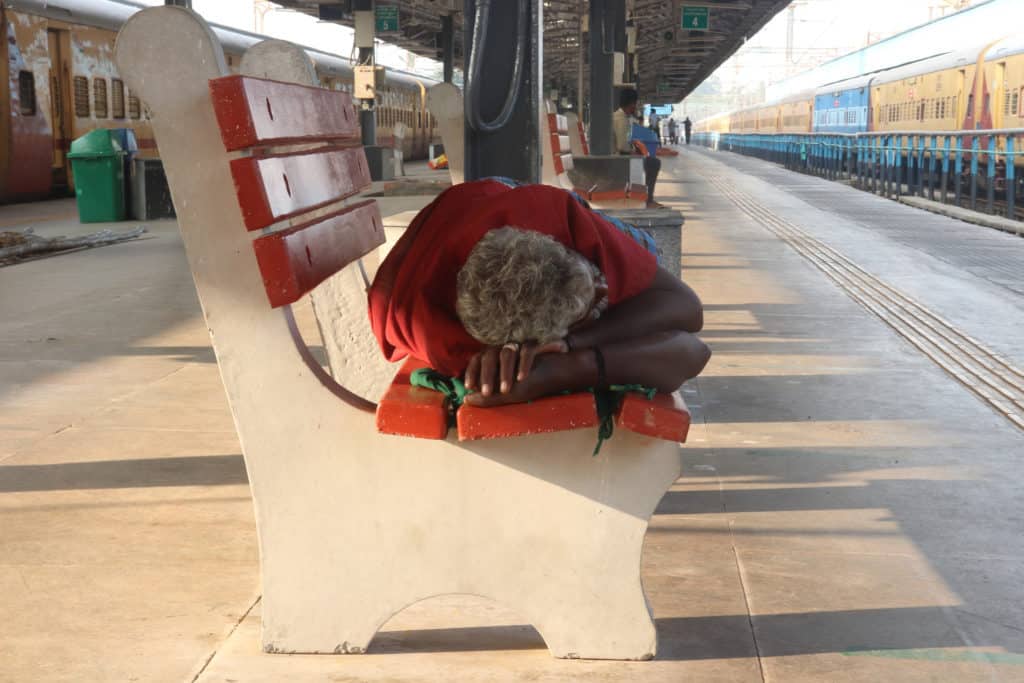May 1, 2014. A bomb blast at the Chennai Central railway station came as a rude shock for the city. The incident jolted the Railway Protection Force. Frantic calls were made to the 108 helpline. Time was precious. But even before medical assistance reached the station and the nearby hospitals could be informed, the men in red ran towards the Rajiv Gandhi Government General Hospital, carrying the injured the best they could. The hospital was around half a kilometre away and it has to be acknowledged that such spontaneous action had saved many lives.
These are the porters in Chennai’s railway stations. Whether during a mishap or in any other pressing situation, they have always been among the first to go beyond their call of duty to help and respond to the needs of the passengers. Not that they always receive credit for it, though. But now it’s not public recognition that they are waiting for, but just the promise of a livelihood.
The plight of the unsung heroes
Just like in any other city, porters in Chennai are a dying tribe. Gone are the days when they would go back home with enough money. In the days when the railways provided an affordable and reasonable mode of transport within the country, and a majority of the population used it for both professional and leisure travel, the porters saw thriving business. But with the low cost airline evolution, a significant chunk of their clientele moved to air travel and business fell sharply. Escalators and battery-operated vehicles in the stations have also made it easier for passengers to carry their own luggage.
Read more: Potters in Chennai staring at a bleak Deepavali…and it’s not just due to COVID
During their heydays, when travellers were plenty and trolleys were not around, porters could earn a minimum of Rs 500 per trip. The job was cumbersome, but financially worthwhile. “I know of porters who managed to provide good education to their kids with whatever they earned. Would you believe it if I told you that that the kids of several porters have grown up to be engineers and doctors?” says Hameed Basha, a porter for 27 years now. Today, Hameed sits with a weary look on the platforms of Chennai Central, hoping that he will find at least one customer during the day who will agree to pay reasonably. He tolls for more than 12 hours a day, but goes back home with less than Rs 500.
Passengers who do avail their services hesitate when they hear the fares. Many feel that they overcharge, whereas these fares are actually fixed. “Passengers often react as if we are charging an exorbitant amount for pulling their trolleys . As a matter of fact these are official fares fixed by the railway administration,” said Suresh. But then it also depends on the customers. “Understanding our plight, some are willing to pay the fixed amount, while many of them continue to bargain. We have no option but to give in,” Suresh added.
Respect has been dwindling too. Passengers often snub them or call them names. Not many are aware that ‘coolie’ is a colonial racist term and that these men are actually licensed sahayaks (helpers) of the Indian Railways. The porters themselves, however, don’t mind being called either way. “How you refer to us doesn’t change the way we make our ends meet and feed our families,” says Suresh D, who has been working as a porter at Chennai Central Railway Station for more than five decades now.

The COVID blow
From March 2020 until November 2020 last year, no trains left or entered the station. The last one year has been a nightmare for porters, and continuous petitions for financial assistance have not yielded any response from the government or the Railways.
With no proper association or union, and no financial help from the government except for meagre donations by a few supportive railway authorities, the tight-knit porter community in Chennai has already been halved in strength. “There were at least 600 porters in the stations of Chennai Central and Egmore before the pandemic. Now, there are barely 300 of us,” said Hameed Basha, as he walked us through the near-empty platforms of Chennai Central.


In these tough times, their pending demand for a permanent railway job require much more attention. All they want is recognition as D-category railway employees, which would also get them medical insurance, a quarter and free railway passes round the year.
Read more: Plan for smart pushcarts on Marina leaves hundreds staring at uncertain future
Though not directly employed by the Indian Railways, porters are licensed to provide their services at the railway station. They hold a licence that authorises them to work and these licences are passed on from one generation to the next. The association with the railways also provides them with perks round the year. However, few apply for a fresh licence today and take the physical test they are required to clear if they want to obtain one.
“Porters are in fact being offered other jobs such as maintaining tracks, manually changing the lines and other hard labour,” says a railway official, on condition of anonymity. Of the 600 licensed sahayaks working at Central station before the lockdown, 300 switched to such other jobs, leaving less than 300 in the profession, of whom merely a handful of 10 get work on a regular basis.
It is not as if porters do not realise that some of the changes that they see around them are inevitable: Technological advancements and amenities that make stations more automated, more convenient for passengers. All they wish is to be ensured of a viable, sustainable career within the Railways department. “It could be in housekeeping or anything apt for our skills. Doesn’t the Railway department owe us that for being loyal to them for generations?” questions a porter, who has been struggling to make ends meet.
Also read:




This is really heart rending. While the wheel of time turns relentlessly, people on the fringes, like these ‘red shirts’ pay a very heavy price. Maybe you should do a crowd funding initiative? Can we not find 300 public spirited and large hearted people in namma Chennai to pitch in with Rs.10000 each? I am happy to put my hand up and contribute.
Thoughtful and uniquely crafted story telling! We hardly see any writings about porters, and it’s touching that their tale didn’t escape, unnoticed. Thank you, for bringing their plights to light.
Me too ready to contribute
I believe these people need to be supported. Let’s all join hands on putting together a Kitty. As suggested by TTSrini above we can invite contributions. I can pitch up to Rs. 2500. Thanks
Barnabas has brought a chilling tale of how poor people especially in the unorganised sector have suffered the most. Similar to porters are the conditions of cobblers whose livelihood depended on school students and office going public.
I am willing to contribute provided it reaches the right person.
Best.
Lt Col M Ravishankar (Retd)
The other face of these porters are not mentioned in the article. These people hardly quote the so called official fares. They often overcharge gullible customers and use the money for drinking. Everyone is suffering in pandemic not just porters.plenty of unskilled labour in and around chennai. These guys do not need railway passes they just board trains without a ticket. I have seen many times. Group D? They don’t deserve it.
THEY ARE ALSO HUMAN TO BE GIVEN FINANCIAL SUPPORT BY FELLOW HUMANS IN TIMES OF ADVERSITY THEY SHOULD NOT BE CALLED AS COOLIES ALTERNATE DIGNIFIED NAME TO BE THOUGHT OFF